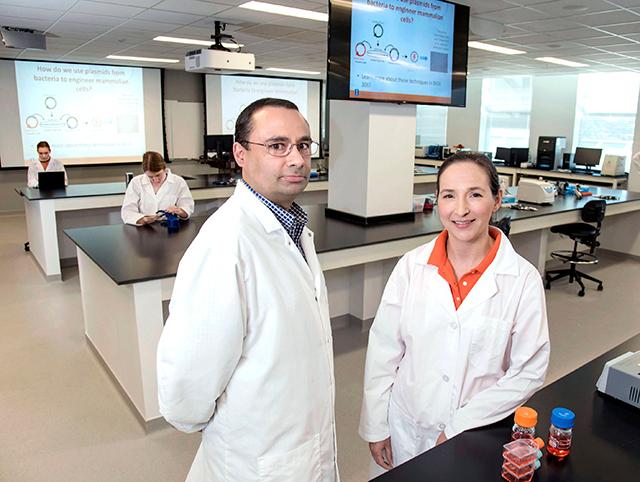The COVID-19 pandemic forced instructors to adapt their courses for online learning. Laboratory courses were particularly difficult due to lack of access to specialized equipment for remote learners. To overcome this challenge, researchers from the University of Illinois Urbana-Champaign designed a laboratory exercise to teach students how to use micropipettes, through remote learning, using at-home kits.
Micropipettes are common–and essential–laboratory instruments and are used in several fields including molecular biology, microbiology, and biochemistry. They are used to accurately transfer very small volumes of liquid. To teach students how to use these instruments, the researchers developed kits, costing $135 per student, that were a fraction of the cost of the instructional equipment that is normally used for in-person classes.
“Although lab kits have been developed previously, they did not focus on micropipetting skills,” said Karin Jensen, Teaching Assistant Professor of Bioengineering, who worked with Associate Professor of Bioengineering Pablo Perez-Pinera (ACPP) to develop the project. “In an effort to provide remote students with lab experience, we developed and shipped kits to students. These kits contained equipment and reagents for them to practice their technique and perform experiments remotely.”
Each kit contained a mini-scale, a glucose meter, a pipet-aid, and a set of micropipettes. Each student was provided with the kit, an instructional video, and a laboratory manual. They were instructed to follow the protocol step by step with the goal of learning how to correctly dilute the glucose solutions and verifying their accuracy using the glucose meter. They also shared their data with the instructors for feedback and grading.
The students also filled out surveys and course feedback forms about the effectiveness of these online classes. “We found that most of the students were excited to use lab equipment despite being in an online section,” Jensen said.
The researchers are now working to improve the exercise. “Beyond COVID-19, there is still a need to develop remote lab learning opportunities for students who cannot attend in-person labs,” Jensen said. “Remote lab activities, similar to what we describe, will be important in increasing access to STEM education.”
###
The paper “Remote Laboratory Exercise to Develop Micropipetting Skills” was published in the Journal of Microbiology and Biology Education. The study was funded by the Department of Bioengineering and the Grainger College of Engineering at the University of Illinois Urbana-Champaign.
Media Contact
Ananya Sen
[email protected]
Original Source
https:/
Related Journal Article
http://dx.





